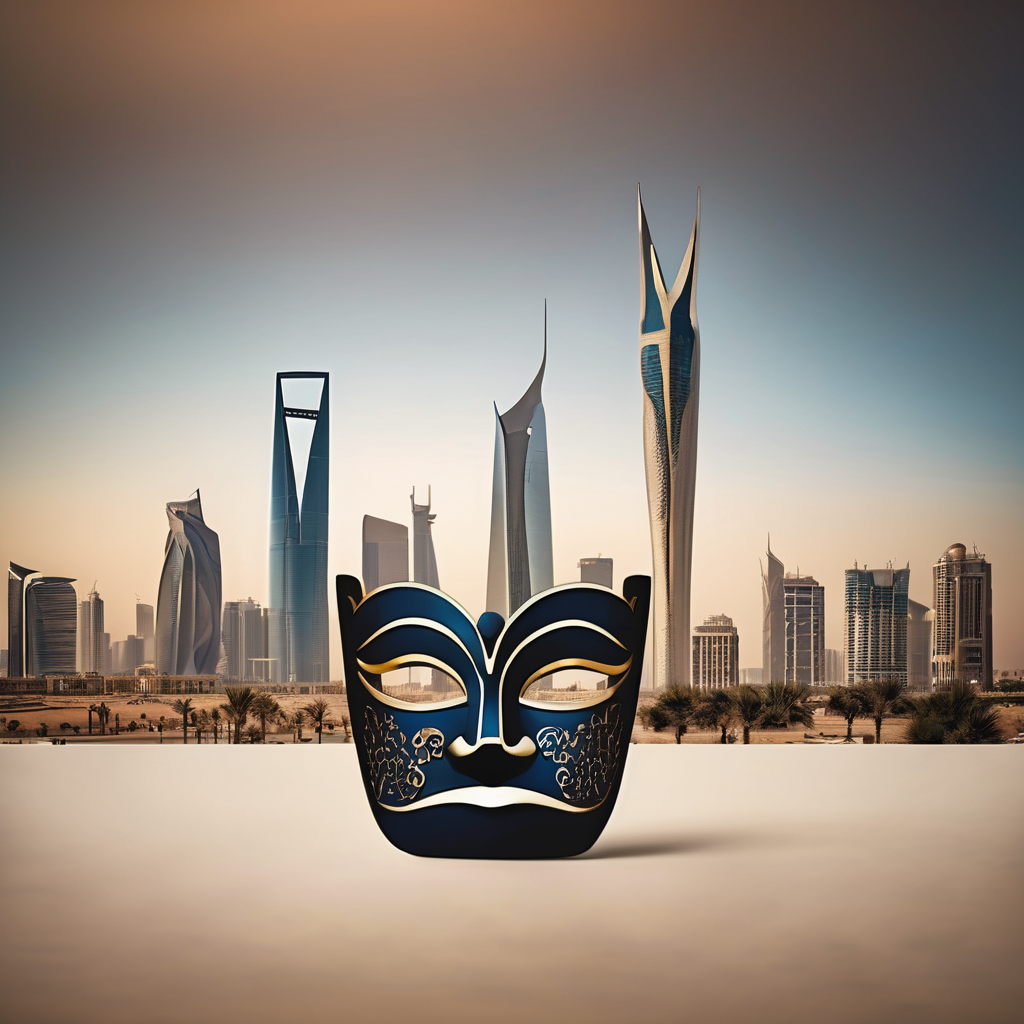The Riyadh Comedy Festival in Saudi Arabia, showcasing well-known American comedians, is facing sharp criticism from human rights advocates who argue that the high-profile event is being used to overshadow the kingdom’s ongoing human rights violations. Launched on September 26 and continuing until October 9, the festival claims the title of “the world’s largest comedy festival,” featuring over 50 comedians, including Kevin Hart, Dave Chappelle, Bill Burr, and Pete Davidson. The festival, organized by the Saudi Tourism Authority, is part of the country’s broader strategy to encourage tourism.
The timing of the festival coincides with the seventh anniversary of the assassination of journalist Jamal Khashoggi, a prominent Saudi dissident, which a US intelligence report attributes to the actions of Crown Prince Mohammed bin Salman. Activists have pointed out that the involvement of American comedians lends credibility to a regime known for imprisoning dissenters and limiting free expression.
Several comedians, including Marc Maron and David Cross, have publicly criticized their peers for performing in Saudi Arabia, with Maron mocking the performers for accepting money from a government implicated in Khashoggi’s murder. Cross expressed his disgust, highlighting the oppressive nature of the Saudi regime. Others, like Atsuko Okatsuka, have turned down offers to perform, citing restrictions against joking about Saudi Arabia, religion, or the royal family.
However, some of the invited comedians defend their participation, suggesting that performing in Saudi Arabia could introduce humor to a socially conservative environment or simply be driven by lucrative paychecks. Dave Chappelle remarked that speaking out on controversial figures in America can lead to backlash, while Jim Jefferies dismissed the Khashoggi incident as not critical to his career choices. Pete Davidson was straightforward about his decision, emphasizing the financial aspect, while Bill Burr expressed surprise at the audience’s enthusiasm for laughter rather than hostility.
Despite these perspectives, critics argue that the situation in Saudi Arabia remains dire, as voices of dissent are harshly silenced. Sarah Leah Whitson from Democracy for the Arab World Now lamented that superficial observations from the comedians ignore the reality of political prisoners facing long sentences for their beliefs. She highlighted the ongoing human rights abuses and called into question the integrity of the foreign artists participating in the festival.
The Saudi government, seeking to enhance its global reputation, has utilized cultural initiatives such as the Riyadh Comedy Festival to project an image of modernization and openness. However, human rights organizations, including Human Rights Watch, warn that these efforts are mere distractions from serious issues.
As the festival unfolds, it serves as a stark reminder of the stark contrasts between the freedom of expression enjoyed by artists abroad and the repressive measures faced by individuals in Saudi Arabia. The mix of comedy and criticism has illuminated a complex dynamic where entertainment intersects with political realities.
